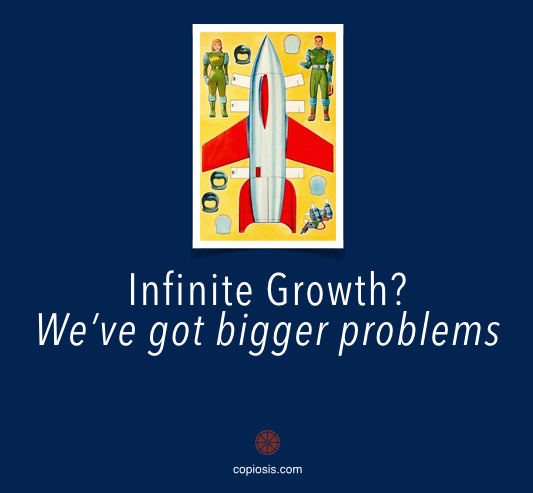 Some resourced-based economy proponents say endless growth is bad. If an economic system promotes consumerism, innovation, and increasingly attractive goods and services; if it motivates people to do good by offering them freaking fantastic products and services people love, humanity will continue destructive consumption patterns, patterns which are wrecking the planet.
Some resourced-based economy proponents say endless growth is bad. If an economic system promotes consumerism, innovation, and increasingly attractive goods and services; if it motivates people to do good by offering them freaking fantastic products and services people love, humanity will continue destructive consumption patterns, patterns which are wrecking the planet.
Endless growth is not our problem, unless that growth is fueled by money as defined today, which inevitably raises the question: Can we afford it?
- Can we afford to create products that last, that are produced through net-zero waste production processes, and that are distributed with cradle-to-cradle product stewardship in mind?
- Can we afford to find ways to become hyperefficient in distributing products and services people demand?
- Can we afford to shift global energy consumption from fossil fuels to renewables?
- Can we afford to colonize other planets in ways that make them desirable destinations?
- Can we afford to provide everyone with food, clothing, education, healthcare, and housing at no cost to them, thereby freeing them to come up with innovation in every sector, making the first four points above much more possible?
Not with today’s monetary systems. That’s why I don’t blame people when they say endless growth is something we can’t afford. They’re stuck inside reality. With today’s economic systems, not only can we not afford endless growth, we can barely afford to dream.
We’re too busy being realistic.
Don’t agree? Let me know, comments are open.
